Greenhouse Gases Show No Increase for Second Straight Year, International Energy Agency Says
The link between global economic growth and emissions growth has been further weakened as greenhouse gas levels show no increase for the second year in succession.
By Alex Kirby / Climate News Network
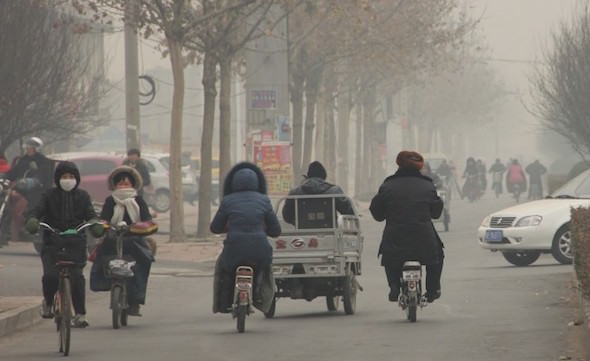
Reduced coal use in China will have a positive impact on poor air quality. (V.T. Polywoda via Flickr)
This piece first appeared at Climate News Network.
LONDON — The world continued to make progress towards a low-carbon economy during 2015, according to analysis by the International Energy Agency (IEA).
It says analysis of preliminary data for the year reveals that global energy-related emissions of carbon dioxide — the largest source of man-made greenhouse gas emissions — showed no increase for the second year in a row.
The IEA announcement will be doubly welcome as some Arctic temperatures continue to warm bizarrely. It comes a day after reports from Fort Yukon in Alaska said temperatures there had reached up to 10°C higher than expected for this time of year.
Fatih Birol, the IEA’s executive director, said of the emissions report: “The new figures confirm last year’s surprising but welcome news. We now have seen two straight years of greenhouse gas emissions decoupling from economic growth.
Landmark agreement
“Coming just a few months after the landmark COP21 agreement in Paris, this is yet another boost to the global fight against climate change.”
Significantly, the global economy continued to grow in 2015 by more than 3%, which the IEA says is further evidence that the link between economic growth and emissions growth is weakening.
In more than 40 years, it says, there have been only four periods in which emissions stood still or fell compared to the previous year. Three of those — the early 1980s, 1992 and 2009 — were associated with global economic weakness.
But the recent stall in emissions comes amid economic expansion. According to the International Monetary Fund, global GDP grew by 3.4% in 2014 and 3.1% in 2015.
The IEA says global emissions of CO2 stood at 32.1 billion tonnes in 2015, having remained essentially flat since 2013. Its preliminary data suggest that electricity generated by renewables was critical, accounting for around 90% of new electricity generation in 2015. And wind alone produced more than half of new electricity generation.
The two largest emitters, China and the US, both registered a decline in energy-related CO2 in 2015.
“We now have seen two straight years of greenhouse gas emissions decoupling from economic growth.”
In China, emissions declined by 1.5% as coal use dropped for the second year in a row. The economic restructuring towards less energy-intensive industries, and the government’s efforts to decarbonise electricity generation, forced coal use down. In 2015, it generated less than 70% of Chinese electricity, 10% below the 2011 figure.
Over the same period, low-carbon sources jumped from 19% to 28%, with hydro and wind accounting for most of the increase.
In the US, emissions fell by 2% because of a large switch from coal to natural gas for generating electricity.
But these declines were matched by increasing emissions in most other Asian developing economies and the Middle East, and also by a moderate increase in Europe.
Premature deaths
The IEA will provide more detail on the emissions in a special report on energy and air quality, to be released at the end of June.
The report will go beyond CO2 emissions and will provide a first in-depth analysis of the role the energy sector plays in air pollution, which causes 7 million premature deaths a year.
Meanwhile, the warming already stored in the atmosphere by past greenhouse gas emissions continues to produce striking results.
The US space agency, NASA, published data earlier this week that shows the average global surface temperature in February was 1.35°C warmer than the average temperature for the same month between 1951 and 1980 — a far bigger margin than ever seen before.
Professor Stefan Rahmstorf, head of Earth system analysis at the Potsdam Institute for Climate Impact Research in Germany, says: “We are in a kind of climate emergency now. This is really quite stunning — it’s unprecedented.”
Your support matters…Independent journalism is under threat and overshadowed by heavily funded mainstream media.
You can help level the playing field. Become a member.
Your tax-deductible contribution keeps us digging beneath the headlines to give you thought-provoking, investigative reporting and analysis that unearths what's really happening- without compromise.
Give today to support our courageous, independent journalists.

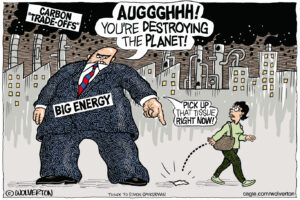

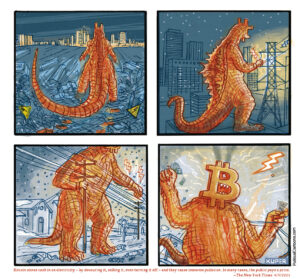
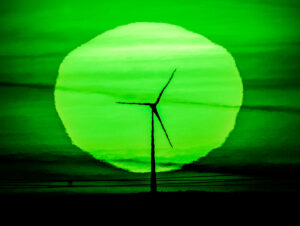
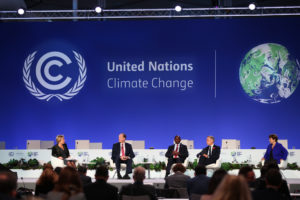
You need to be a supporter to comment.
There are currently no responses to this article.
Be the first to respond.